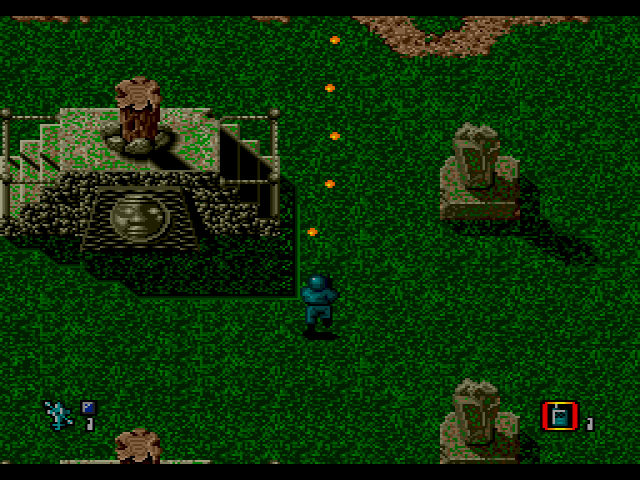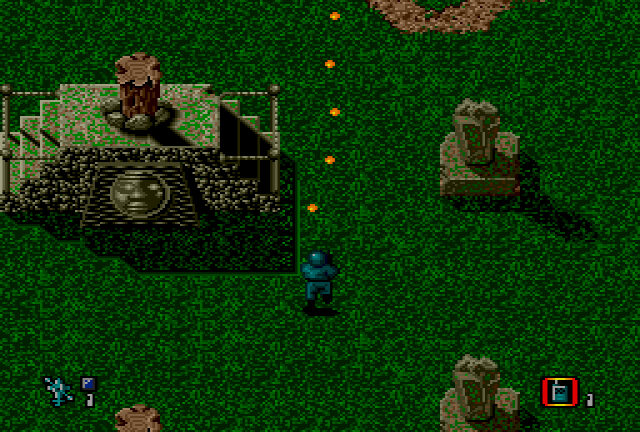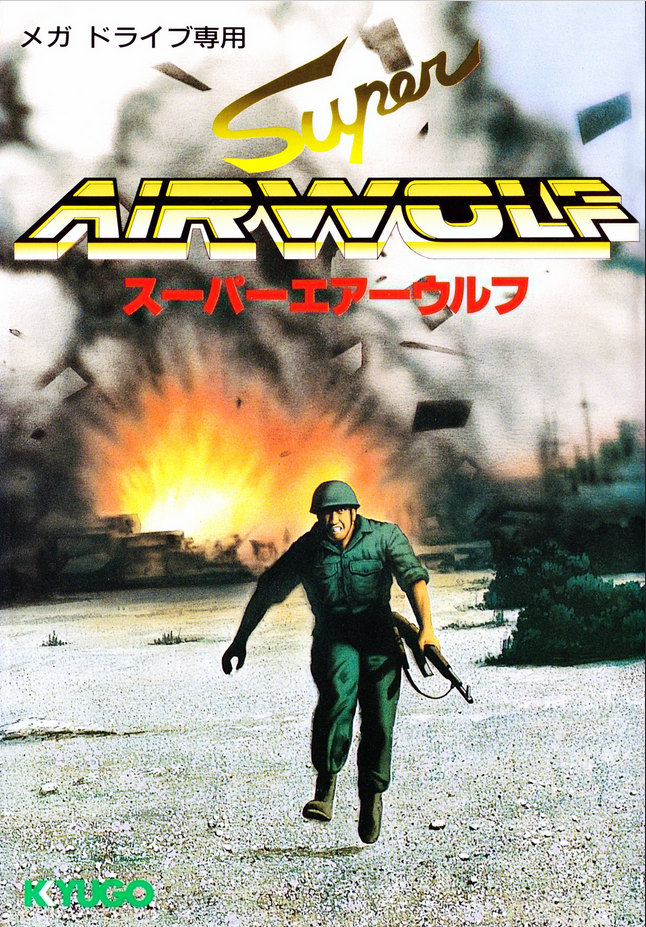
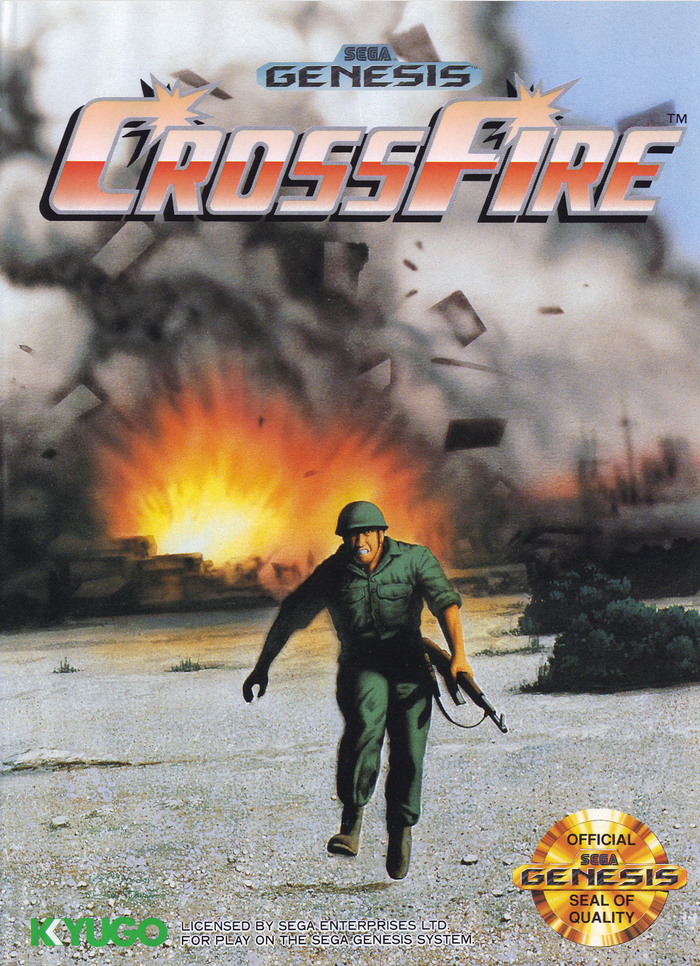
PUBLISHER: Kyugo
DEVELOPER: A.I.
RELEASE DATE: 03/29/1991 (JP), 1991 (US)
The protagonist in CrossFire is named Billy. Not a silly action name like “Billy Flexnpecs.” Not an homage like “Billy Stallone.” Not even an average moniker like “Billy Walters.” Just… Billy. The name Billy gets the job done as well as an unnamed hero might, I suppose. Heck, nobody wonders what Mario’s last name is (it’s Mario, in case you were wondering… Mario Mario). Still, this isn’t the Mushroom Kingdom we’re talking about here. This isn’t fantasy. CrossFire is a military-themed shoot-em-up that takes place in South America. Billy’s just trying to do some ethically questionable jobs for the government and get home to his old lady. As such, surely developer A.I. could have given Billy a last name? If not for our sake, then for his.
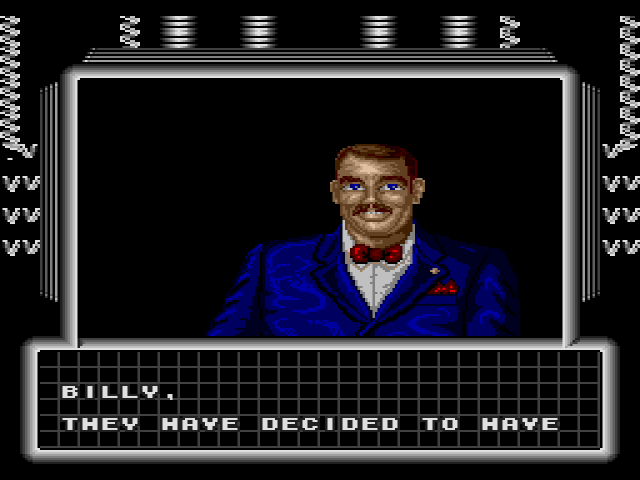
“You’re getting awfully hung up on this last name business, Dylan.” I can’t help it. Poor Billy’s glaring lack of a last name testifies to CrossFire‘s bizarre halfhearted ambition. To its credit, the game attempts to mesh numerous gameplay ideas together for a more cinematic experience. Unfortunately, the lazy shooting and drab graphics drag the game down into Mediocre Shooter Hell. I’ve never played anything quite like it.
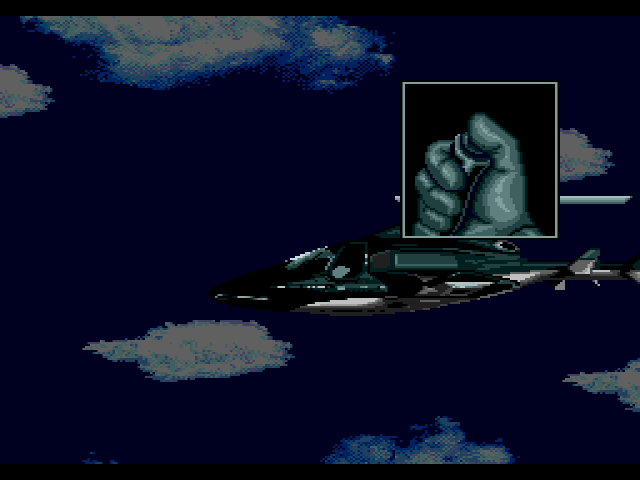
Each of CrossFire‘s six stages is divided up into four parts. In both the first and fourth parts, you control a helicopter through bland vertically-scrolling environments like a jungle, a ship yard, a factory. You shoot with reckless abandon, while planes, ships, stationary turrets and other shooter stereotypes bombard you with similar gusto.
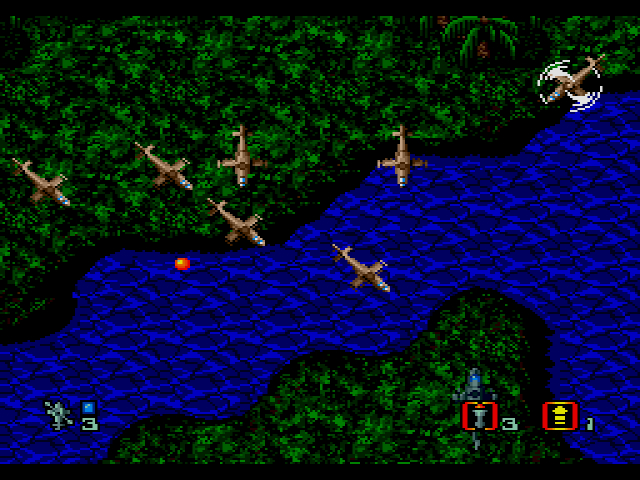
In the second part, the helicopter descends down into enemy bases. From a top-down view, the front part of your helicopter lays waste to any soldiers, turrets and any other exploding objects you might see. In the third part, your helicopter drops Billy off in at the very beginning of the enemy base. Not sure why Billy couldn’t have been dropped off at the end, but whatever; these sections aren’t terribly long. You now control Billy through a top-down Ikari Warriors-esque ministage, destroying any soldiers that get in your way. Eventually, you slaughter your way into the enemy base, where your captured comrade lies waiting to be rescued. Free him, escape, then it’s back to the helicopter for more rapid-fire escapades.
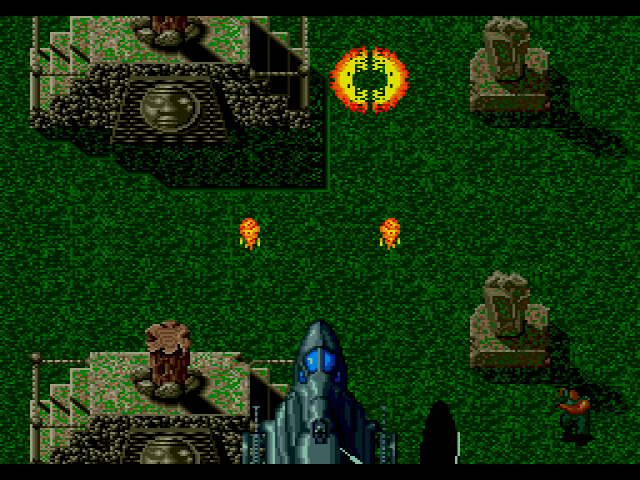
Dividing each stage into four sections both breaks up the shooting portions and attempts to conceal the fact that the shooting… isn’t great. Don’t get me wrong, the shooting sections are more than playable; if you’re in the mood for a mindless old shooter, there are far worse on the Genesis. That said, I never cared about what was happening on-screen. Mostly the shooting, though the lackluster environments, generic enemies and power-ups, and tuneless music don’t help matters. At certain points, I was getting killed left and right by barely visible orange enemy bullets. Other times, I’d get on a roll and slaughter untold amounts of enemy vessels. Either way, I was bored. If there’s any emotion you don’t want to feel while playing a shoot-em-up, it’s boredom.
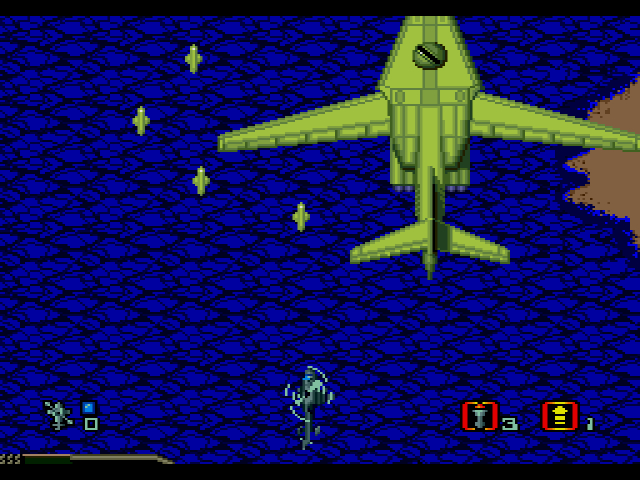
Blowing up everything from your god-like helicopter as it descends into enemy territory is fun and doesn’t last nearly long enough. Controlling Billy in top-down mode works well also, but it too is short; I was hoping to explore more inside each base, but the game only has you rescuing one captive soldier per area. Combine these too-short, not-fully-realized sections with unimaginative shooting portions, and you have a game with above-average ideas and below-average execution.
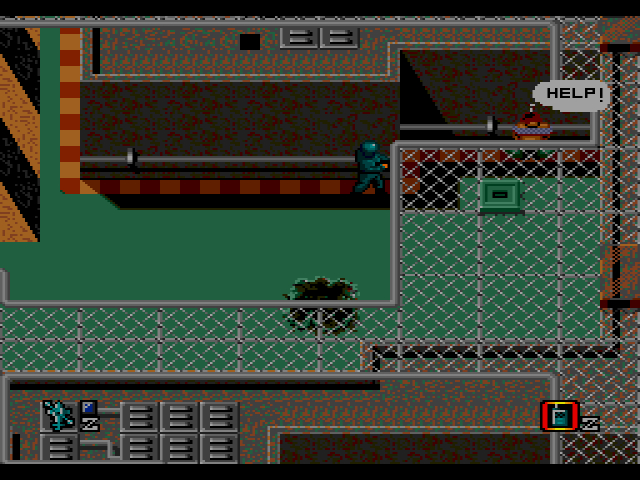
CrossFire was released in Japan as Super Airwolf, and is actually a sequel to the Arcade/Famicom title, Airwolf (no affiliation with the NES game of the same name). Both games are based on the semi-popular US military drama that aired in the mid-80s on CBS. The Internet doesn’t seem to know why Super Airwolf changed to CrossFire, but my guess is that publisher Kyugo only had the rights to use the show in Japan.
Super Airwolf uses characters and music from the TV show, and holy crap, is the soundtrack awesome. Fantastic, propulsive music livens up even the weakest of shoot-em-ups. Despite only being released in Japan, Super Airwolf‘s text is all poorly constructed English; non-native speakers likely translated it for reasons unknown. CrossFire‘s English translation does not receive any improvements from Super Airwolf’s translation. As a result, the script is both terrible and wonderful throughout.
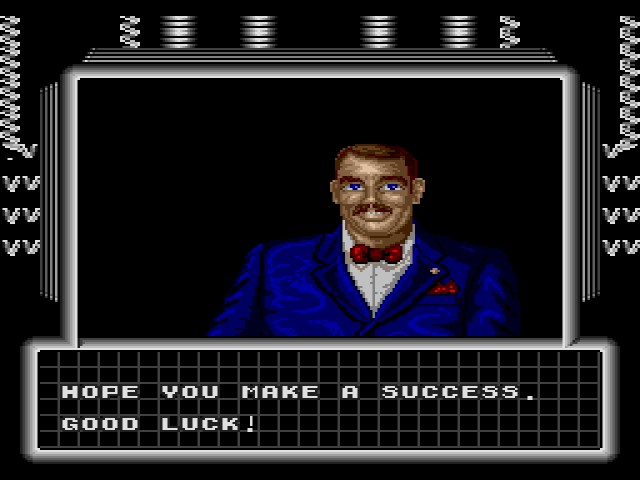
CrossFire is like that student who you know is capable of more, but when pressed to study, he/she only does the bare minimum. There are glimpses of greatness in CrossFire‘s code, but when all’s said and done, Billy still doesn’t have a last name.
C-
